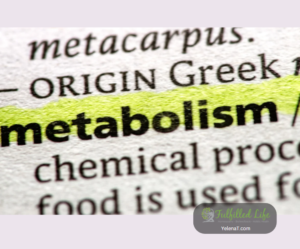For centuries, humans have associated “gut feelings” with our emotional, mental, and physical states. But what happens when we lose touch with these instincts? In today’s fast-paced world, many of us ignore the subtle signals our bodies send us, often leading to overlooked health issues. However, modern scientific research is shedding light on the profound connection between our gut and overall health, validating age-old wisdom.
Anatomy of the Gut
Our digestive health and the gut microbiome are crucial for maintaining overall health. The gut is not just part of the digestive system; it also plays a vital role in regulating the immune system, endocrine system, and nervous system. An imbalance in gut flora can lead to noticeable changes in other areas of our health.
The digestive process begins with our mouth and nose, extends through the gut and colon, and ends at the anus. The gut starts immediately below the stomach’s pyloric sphincter and continues to the rectum’s end.
The small intestine, consisting of the duodenum, jejunum, and ileum, is the first part of the gut. The duodenum breaks down nutrients with specialized enzymes, the jejunum absorbs these nutrients, and the ileum absorbs extra bile acids and vitamin B12, passing undigested food particles to the colon.
The large intestine, or colon, follows the ileocecal valve. It is responsible for reabsorbing water, balancing electrolytes, absorbing some nutrients, and removing waste. This is where most of our gut microbiome resides and interacts with the rest of the body.
Why Gut Health Matters
Digestion is an intricate process involving both the physical and chemical breakdown of food to convert it into energy. This energy supports numerous biological needs, from growth and repair to basic functions like breathing and thinking.
However, ensuring smooth digestion is not always straightforward. Issues like gas, bloating, constipation, and heartburn are common, affecting nearly two-thirds of Americans at some point. Additionally, digestive issues can sometimes be silent, with individuals experiencing underlying problems without obvious symptoms.
Gut health impacts more than just digestion. Scientific evidence links the digestive system’s function to the brain, immune system, metabolism, and chronic disease risk.
When our digestive system is unhealthy, it hampers nutrient absorption and allows toxins to pass through the body. This nearly 30-foot intestinal tract acts as both a barrier and a sponge, only letting essential nutrients pass through.
Poor digestive health can create a vicious cycle. Gut inflammation increases nutrient needs while decreasing nutrient availability, leading to deficiencies that promote harmful bacteria growth and further inflammation.
Long-Term Effects of Poor Gut Health
Poor gut health can be disruptive, causing anxiety and affecting social and work life. Chronic digestive issues are linked to conditions like Irritable Bowel Syndrome (IBS), Inflammatory Bowel Disease (IBD), and Crohn’s disease. Additionally, poor gut health can impact other body systems, including the brain, immune system, heart, kidneys, and liver. This highlights the interconnected nature of our bodily systems.
Tips for Better Gut Health
- Whole, Nutrient-Dense Foods: Focus on consuming whole, nutrient-dense foods while avoiding processed foods and sugars. Whole foods provide essential nutrients that support gut health and overall well-being, while processed foods and sugars can disrupt the balance of your gut microbiome.
- Probiotic-Rich Foods: While probiotics are well-known, incorporating less common sources like fermented soy products (tempeh, miso) and fermented vegetables (kimchi, sauerkraut) can diversify your gut flora.
- Prebiotic Fiber: Foods like chicory root, Jerusalem artichokes, and dandelion greens are rich in prebiotic fibers that feed beneficial gut bacteria.
- Chew Thoroughly: Taking the time to chew food thoroughly aids digestion by starting the breakdown process in the mouth, reducing the load on your gut.
- Breathwork and Relaxation Techniques: Practicing deep breathing exercises or meditation can reduce stress, supporting gut health. Stress negatively impacts gut motility and microbiome balance.
- Stay Hydrated with Electrolytes: Drinking water with added electrolytes supports proper hydration and gut motility, preventing constipation.
- Prioritize Sleep: Quality sleep is essential for gut health. Poor sleep can disrupt the balance of gut bacteria and negatively affect digestion. Aim for 7-9 hours of restful sleep each night to support your digestive system.
- Test Your Gut Health: Many people experience silent digestion issues without obvious symptoms. Regular gut health testing, such as stool tests or gut microbiome analysis, can help identify underlying problems and guide proactive steps to improve gut health.
- Be Proactive: Taking a proactive approach to gut health is crucial. By regularly monitoring your digestive health and making informed dietary and lifestyle choices, you can prevent potential issues before they become serious problems.
Your gut health is integral to your overall well-being. By paying attention to this crucial aspect of your health, you can improve not only your digestion but also your immune function, mental clarity, and energy levels.
Are you ready to take charge of your gut health and longevity?
I invite you to schedule a complimentary consultation with me. Together, we can discuss your digestion, health goals, and proactive steps to ensure a healthier, happier you.








